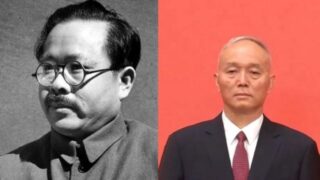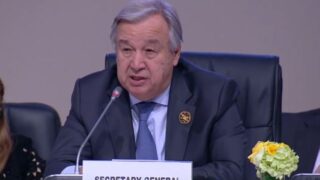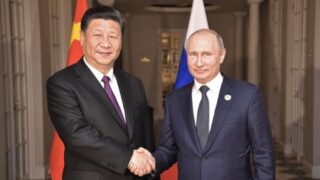No time to sit idly, MPs and Uyghur activists tell the UK government: the historical vote should now have practical consequences.
by Ruth Ingram
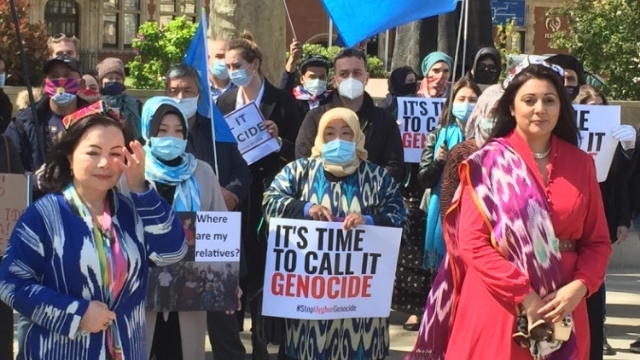

The UK parliament’s landmark genocide vote must not be squandered, say Uyghur activists and campaigners who are calling for an accelerated response to the crisis unfolding in North West China.
Atrocities against the Turkic peoples of Xinjiang, continue apace at the hands of the CCP, and there is no time to lose in bringing them to a swift end, urged Rahima Mahmut, director of the World Uyghur Congress in London during a webinar at the weekend.
Grateful for the unprecedented vote by UK lawmakers confirming that genocide was being carried out against her people, Mahmut pointed out that while nations prevaricate, individuals continue to be tortured and abused daily simply because of their race.


At an event organized by the Global Alliance for Tibet and Persecuted Minorities, GATPM, MP Nusrat Ghani who had initiated the once in a lifetime debate in parliament, reiterated her longing for a united world effort to end the “nightmare for the Uyghur people.” She hoped MP’s courage would galvanize other countries to stand against Beijing and form alliances to circumvent dependance on China. Describing the UN as a “busted flush, held hostage by Russia and China” where calling out atrocities was concerned, she called for an independent mechanism to investigate genocide that would silence the naysayers once and for all and satisfy the criteria demanded by law.
But time was of the essence, she urged, in salvaging evidence of crimes in Xinjiang, already rapidly being erased by the CCP to avoid detection. Shocking open-source data showing an 84 per cent drop in births in Southern Xinjiang, has already been photo-shopped in latest government figures which have been released this time without a regional breakdown. The delaying tactics of Beijing in preventing a UN team from investigating the camps must be thwarted before the proof disappears completely.
“We have to act quickly,” she urged, hoping that the UK’s chairmanship of the G7 in June would further the momentum by keeping the plight of the Uyghurs center stage. Beijing had shot itself in the foot she noted, regarding possible trade deals with the UK and the EU by sanctioning prominent lawmakers, including herself, around the world. No business could be done with Beijing now, she noted, until the sanctions were lifted.
The UK had a chance, she said, to negotiate post Brexit trade deals according to the “highest possible standards of human rights.” She hoped that alliances of democratic nations around the world would stand together to combat Beijing’s bullying and set new benchmarks for trade. “Genocidal states must not set world standards,” she urged.
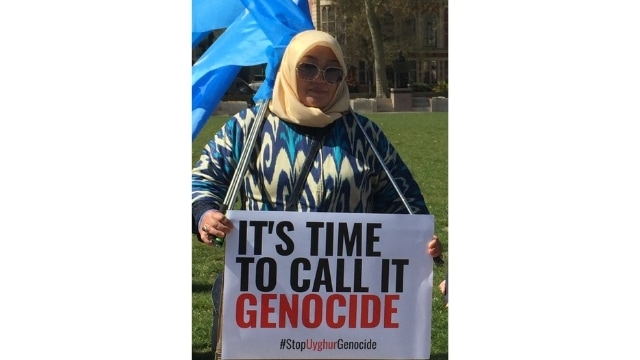

China expert, Gray Sergeant of the Henry Jackson Society, flagging up Beijing’s incremental muzzling of states in the developing world and manipulation of UN institutions to quell dissent, said that the UK should be a leading light in pushing forward human rights at the UN, not dragging its heels. Beijing was riding roughshod over international rules, redefining internationally accepted standards of human rights, garnering support wherever it could in the developing world and should be challenged, he stressed.
Rahima Mahmut welcomed UK sanctions against Chinese officials and entities but urged courage in going after the one glaring omission, Chen Quanguo, the author of the brutalities, both in Tibet and now in Xinjiang. Robust measures must also be put in place to ensure Uyghur forced labor does not continue to taint the supply chains of world and scores of complicit companies must not be allowed to slip beneath the radar without censure.


The UK vote was the first step, said Nus Ghani writing in the UK parliament bulletin after the vote. China must be held accountable to the rules-based order, she said, and business could not continue as usual with the superpower.
The government must answer for its failure to investigate the genocide being carried out against the Uyghurs, she said and “fulfil its obligations under the Convention on the Prevention and Punishment of Genocide and all relevant instruments of international law to bring it to an end.”
Quoting the Biden Administration that has said it wants Western democracies to come together on China, she noted that across the world relations are hardening over China’s aggressive policies. “Our government must now take a strategic, and crucially proactive, approach to UK-China relations which does not undermine our values and laws,” she stressed.


She advocated Downing Street undertaking a robust audit to assess British dependency on China and its security vulnerabilities. “If we do not understand our weaknesses, then we cannot build on our strengths,” she stressed.
“As every day passes with the UN held hostage by China, the CCP can continue with their intent to destroy Uyghur people, their faith, language and identity,” she said. “We won’t be bystanders to these crimes, and we can and must act.”
While the world debates and delays, and squabbles over definitions and terminology, Rahima Mahmut’s people suffer. “Every single day my people are suffering, children are crying for their parents and people are going through unimaginable pain,” she said.


